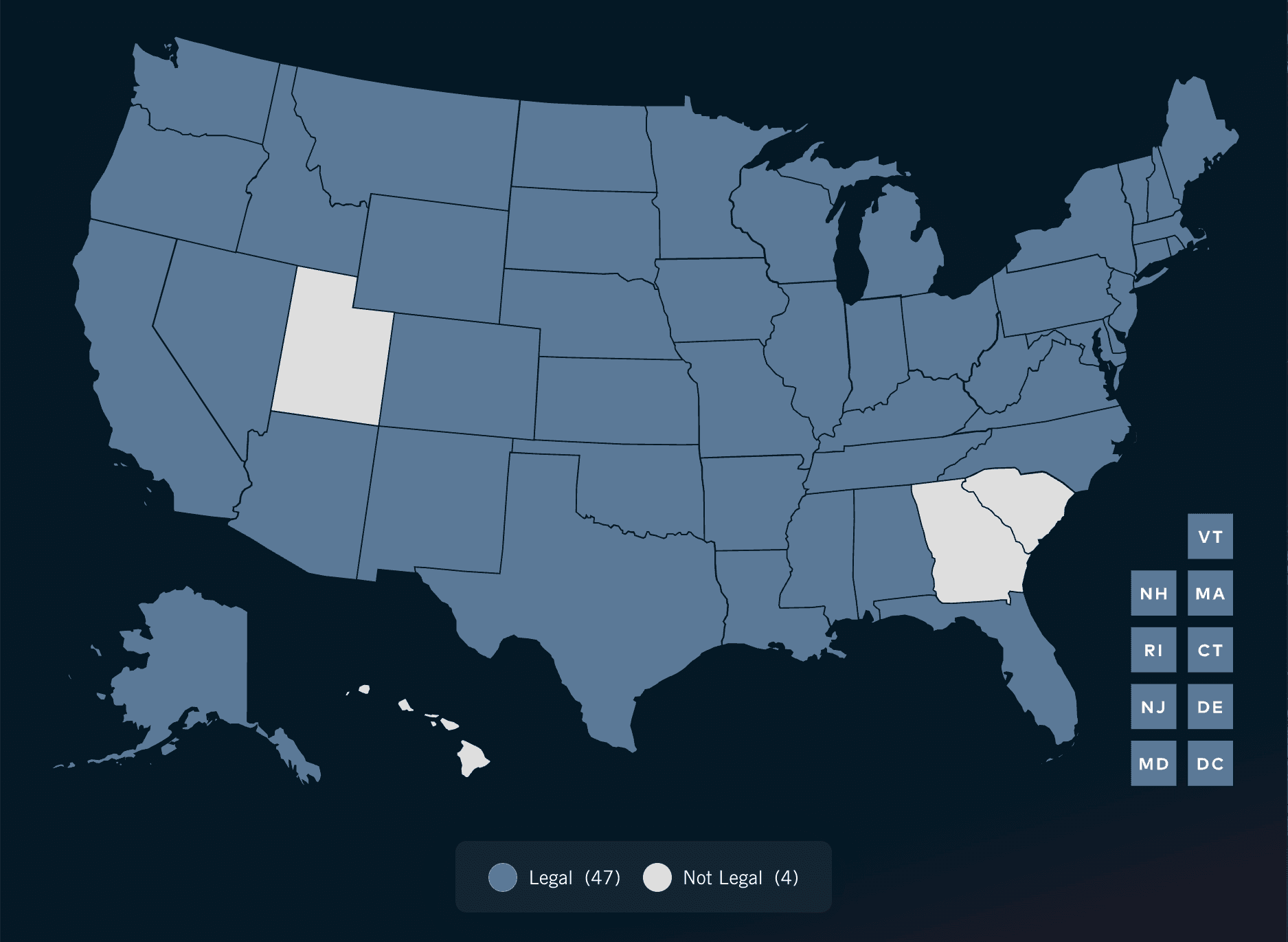Sports betting, explained
Since a 2018 Supreme Court decision overturned the Bradley Act, which spurred a state-by-state legalization of online gambling, sports betting has become a rapidly growing multibillion-dollar industry.
The Bradley Act, passed in 1992, outlawed sports gambling in American states where it wasn’t already legal. However, a 2018 Supreme Court decision spurred the legalization of online gambling state by state, turning sports betting into a multibillion-dollar industry that’s legal in 47 states and the District of Columbia.
Gambling in America dates back to the colonial era, but religious movements in the 19th and early-20th centuries successfully pushed to outlaw gambling in much of the US, though it continued in New Orleans, on riverboat casinos, and on the black market. Nevada legalized gambling in 1931 to generate revenue during the Great Depression and paved the way for Las Vegas to become the gaming capital of the US.
Critics of the rising industry say sports betting has become a serious social problem in the US, especially for boys and young men.
Hours of research by our editors, distilled into minutes of clarity.
Since a 2018 Supreme Court decision overturned the Bradley Act, which spurred a state-by-state legalization of online gambling, sports betting has become a rapidly growing multibillion-dollar industry.
These bets ranged from who would win the World Series to what color clothes famous celebrities would wear to the Super Bowl. Experts believe the industry will continue to grow.
Sports betting used to primarily consist of who would win and the points spread, but the rise of online betting apps has fueled a substantial increase in parlay bets. "Existing markets are still growing at a rapid clip," said Noah Naparst, who evaluates sports-betting companies for Goldman Sachs. "So we’re not mature yet, but we’re not in the early wildcat days of the market anymore, either.”

This downloadable map provides an easy-to-see overview of each state's position on legalized gambling, including a breakdown of online versus retail betting. Click on a state, and a new page will provide information on what type of wagers are allowed, key regulations, tax rate data, and where that tax money will be allocated.

Sites like Polymarket and Kalshi allow users to make bets on sports outcomes, though their positioning (as prediction markets, not originally intended for retail investors) helps them avoid the scrutiny of the Securities and Exchange Commission. Instead, they under the supervision of the Commodity Futures Trading Commission. Some worry that the lack of oversight has encouraged insider trading, putting everyday users at a severe disadvantage and potentially corrupting the integrity of professional sports.
In October 2025, a current coach, a current player, and a former player and assistant coach were arrested as part of an FBI investigation into a large-scale gambling ring. The current player, Miami Heat guard Terry Rozier, is accused of using non-public information to bettors.
In November 2025, two pitchers for the Cleveland Guardians were charged with coordinating with sports bettors to enrich themselves and others. In many instances, they shared the kinds of pitches they would throw at specific points in the game. Bettors then placed money on those actions.
The world of sports gambling is filled with insider lingo: What's a "spread"? How about a "moneyline" or a "parlay"? This resource breaks down the jargon, helping you navigate the industry or, at least, giving you the keys to talk about it.
People in their early 20s represent the fastest-growing group of sports gamblers. That fact concerns mental health professionals, who warn that early exposure to gaming primes children’s brains to seek digital rewards.
The noted journalist and author of "Moneyball," "The Big Short," and "The Blind Side" has now fixed his discerning eye on the sports-betting industry. In this interview, he explains why he sees sports betting as a problem for American society, especially boys and young men, and why he believes the government needs to regulate the nascent industry more seriously.
Art, music, sports, entertainment, movies, and many other subjects—these elements define who we are as a society and how we express ourselves as a culture. Take a deep dive into the topics shaping our shared norms, values, institutions, and more.